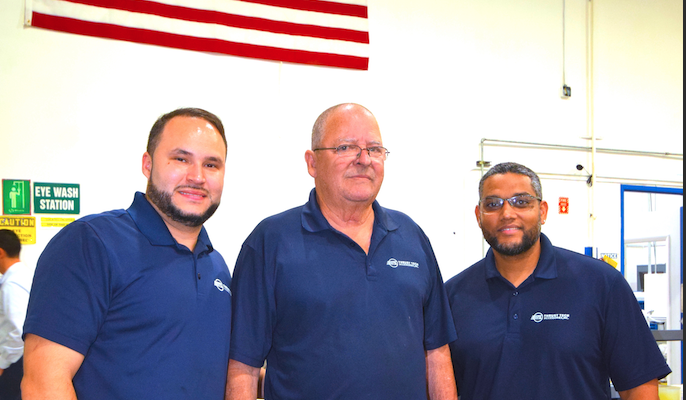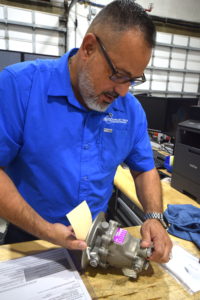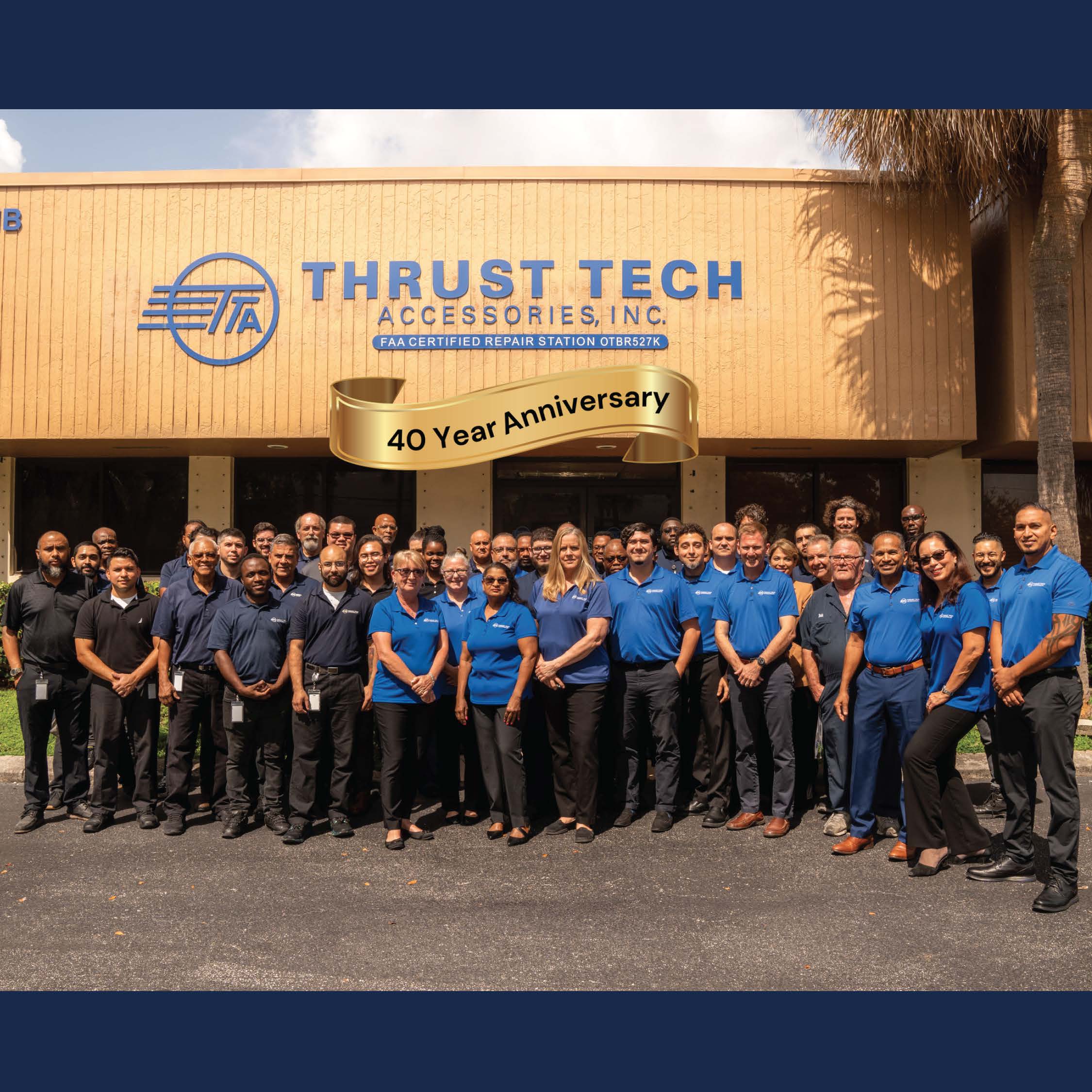
If you’re in the market for a new aviation MRO (maintenance, repair and overhaul) services agreement or you’re a new aircraft operator or airline needing such an agreement, how do you best evaluate options? What’s most important to consider? Here are our top tips for assuring you get the MRO agreement that’s right for your aviation business:
1. Set Clear Expectations for the Agreement
In evaluating any MRO supplier agreement, it’s critical that both parties have clear expectations. That’s a no brainer. So, if you’re an aircraft operator or airline, be sure to articulate your corporate and operational goals to any potential MRO supplier. Explain what’s important to your organization, discuss MRO obligations, and how you would expect the supplier to pivot if something unusual arose.
On the other side, the MRO services supplier will desire to know about your company too. Be prepared to explain how and where your firm operates. Explain the operational scope and nature of your fleet. Do you operate one single aircraft or 50 of that same model aircraft? Do you have mixed aircraft types to maintain or one type throughout the fleet?
These and other initial discussion topics will help set the right expectation – moving you toward selecting the best MRO supplier agreement to meet your future needs.
2. Value MRO Supplier Longevity & Experience
Once the stage has been set, “the number one factor that those seeking an MRO supplier agreement should look for is ‘how long they’ve been in the industry,’” believes Stanley Kowlessar, General Manager and President of Thrust Tech Accessories (TTA), a MRO in business for 35 years outside South Florida’s Fort Lauderdale Executive Airport (FXE). TTA specializes in the overhaul, repair, modification, and inspection and testing of hundreds of aircraft components.
Kowlessar suggests asking these additional critical questions too, about any potential MRO partner you’re considering:
- Are they experienced?
- Are they financially sound and able to weather tough times?
- Do they do high quality work?
- Do they have alternate solutions outside the traditional practice?
“Cost alone is not always in your best interest,” he tells potential customers. “It might cost you a little more upfront, but over a long period of time you’re saving money in the reliability provided by a veteran company.”
 3. Seek Reliability and Resilience
3. Seek Reliability and Resilience
Another top factor to consider is the reliability and resilience of an MRO services company. That’s particularly the case during any economic downturn or a catastrophic downturn, such as what the industry has endured the past two years. Knowledge of the MRO supplier’s reliability and resilience will help you see if they’ll be there for you in tough times.
During the worst of the pandemic, many MROs shut down, but, for example, TTA, which has weathered many downturns over its decades of service, did not. In fact, it continued to serve customers, added more skilled experts and technicians and engineers in its MRO facility, and sizably increased its parts inventory.
Potential customers seeking MRO services should insist on “stability and a company with a culture of commitment to their customers.
“For our customers that was a tremendous plus,” he adds, believing that’s the kind of MRO supplier response companies should consider when inking any future maintenance agreements.
Kowlessar says potential customers seeking MRO services should insist on “stability and a company with a culture of commitment to their customers. “From my level on down,” he notes, “the TTA commitment is always to work hard for our customers.”
4. Perform Due Diligence, Ask Questions
In evaluating any MRO agreement, don’t just take the language at face value. It’s prudent to ask pertinent questions about all program benefits, discounts, or MRO services provided. Also ask about the supplier’s risk factors, capital/financial position, technological resources, delivery strategies, general business practices, geographic location, or other significant elements that could impact that firm’s ability to fulfill your agreement.
Keep in mind that with supply chain disruptions over the past two years, many experienced people who typically negotiated the MRO agreements for airlines or aircraft operators have either taken retirement or left their companies. So, if you’re new to MRO agreement negotiating, don’t be shy about asking questions – and look for an MRO that’s eager to answer those inquiries and that shows transparency with potential customers.
Better yet, if your background is finance or management but not MRO, it’s prudent to consider hiring an MRO consultant/technical expert who understands how an MRO facility works and its repair processes and services.
“To truly assess the interworking of MRO facilities and compare them, as well as understand how the pricing and cost structure is presented, you have to do your homework and ask all the right questions,” says Kowlessar. “To do that well, you really need to understand the MRO business dynamics so an experienced MRO expert can be of great help in assisting you with your assessment.”
That can also help in defining tasks and setting deadlines. Designate who will be the chief point-of-contact for each company as well as how they’ll communicate, what technology will be used, and how often updates should occur.
5. Consider the Numbers BUT…
It’s easy to consider only “the numbers” in comparing MRO supplier contracts and making a decision – saying “well this MRO supplier is charging less than all the others so that’s the best for us.” But not so fast… Don’t just crunch the numbers or take the lowest cost without further investigation.
A company that provides low-ball pricing in an MRO agreement could simply be looking to show potential income to a buyer and then to cash out and sell. That could leave you working with another owner/new management – others who may not understand or be attentive to your company’s needs. Low-ball pricing also could mean it sounds good on paper, but you’ll often pay much more later for repairs that aren’t within the terms of the agreement. And on the cost front, be sure that what’s offered is actually “doable.”
TTA wants to offer a fair price that maintains business and enhances efficiencies for our customers.
But the reality heading into 2022 is that the pandemic-era supply chain disruptions have rippled through the raw materials and piece parts arena, and that’s caused pricing for all sorts of raw materials to go up, in some cases by 30 to 40 percent, particularly with certain parts suppliers.
Yet, TTA and other reputable MROs are doing everything possible to hold the costs down to maintain business volume. With a well-thought-out and “fairly priced” MRO agreement, “we want to maintain business for you so that your efficiency remains at a higher level,” stresses Kowlessar. Yet, those higher raw materials costs are out of the MRO’s control. So, if the price presented in a potential supplier contract seems too good to be true, proceed cautiously.
Also look for transparency and be sure your “customer call list” – those repairs covered under the terms of the maintenance agreement – cover as much as possible of what you’ll need during the contract period. It’s akin to ensuring that your homeowner’s insurance policy will cover the right elements if the roof leaks or there’s a fire.
But sometimes, something unusual does surface in the MRO process, so then what happens? Look for transparency. Does the MRO routinely provide photos and a detailed explanation to customers when the simple fix isn’t what’s needed? That’s important.
Also, ask about volume discounts if you’re an aircraft operator or airline that has many aircraft of the same type within your fleet. “If you tell us that every week or every month, you’ll likely need a generator, certain valves or other parts because you have a fleet of aircraft, we can do a ‘power buy,’” says Kowlessar. “Instead of buying every month, we can buy a three-or four- month’s supply, which in volume can help hold costs down a bit and leverage the economy of scale. You can negotiate that. We then can work that volume discount into the price that we give the customer.
On the price side, Kowlessar’s advice is to aim for a “realistic” pricing contract. Avoid unexpected price hits over the terms of the contract by asking all the right questions, having a frank discussion with the supplier, sharing your needs in detail, understanding the elements that are out of the MRO supplier’s control, such as soaring prices for replacement parts and materials, and then finding the best match.
Bottom line? Be sure the “fit” is good on all fronts, not just price.
6. Know that Your Reputation Counts Too
Understand that how you as an aircraft operator or airline do business, and how you maintain and repair your aircraft also has a big impact on any supplier agreement. Your reputation and location in the market will influence what contract is presented to you – and whether that agreement has “no exclusions” or “exclusions.”
“No two customers maintain their equipment in the same way,” stresses Kowlessar, adding that “some push it.” More often, for cost reasons, airlines or operators, particularly in stressed countries, are running what’s called “hard times” – meaning that something has to fail before the part is removed for service.
Pricing in any MRO contract is often seen as a reflection of your philosophy and/or reputation, which directly affects future MRO costs.
Kowlessar says that “if you rely on the ‘I’m going to run it until it fails’ philosophy, be prepared to pay above average to have your item repaired.” Using an automobile example, he explains that if an owner replaces automobile brake pads during routine maintenance, that’s a cost. But it’s far less of a bill than if the owner waits, the brake pads deteriorate, and then the rivets bore into the brake rotors.
It’s important to recognize that pricing in any MRO contract is often seen as a reflection of your philosophy and/or reputation, which directly affects future MRO costs.
7. Assess the Supplier’s Nitty-Gritty Capabilities
Details count so ask about the supplier’s specific production capacity in its MRO facility. Also ask about its on-site parts inventory, which can save time and get you the parts quicker than if the MRO facility must order them.
In addition, find out if the MRO provider handles only OEM (original equipment manufacturer) parts, which may be in shorter supply during this pandemic era; or whether it also offers the option of high-quality PMA (parts manufacturer approval) parts; and DER (dedicated engineering representative) approved solutions. Those elements too can give operators more flexibility and provide cost savings over time.
Also, ask about how many workers and skilled technicians the MRO provider employs to meet the terms of any agreement? Price is great but if the firm doesn’t have enough qualified people to fulfill the stated inclusions in your MRO agreement, that’s an issue. Be sure to inquire about previous experiences with companies similar to your own, the firm’s sustainability efforts, and any recent and relevant projects.
 8. Tour the Facilities
8. Tour the Facilities
Taking an on-site MRO facility tour is a great way to get a first-hand perspective. It can help you assess whether the supplier can truly meet your company’s needs for MRO services. A good tip? If you’re new to the job of negotiating such agreements or have a background that is in finance or another department but not MRO, it’s advantageous to bring along a certified maintenance expert to provide expert insight.
While touring, talk with on-site managers and front-line employees to learn about their experience, skill sets, and certifications. Gauge the level of the employee professionalism and any resources – particularly technology – provided to them in doing their jobs. Look at the equipment and whether it appears well maintained. is the facility clean and well organized?
Also ask to see specific kinds of repairs that may fit your needs. Examine quality control processes. Also find out what, if any, services are sub-contracted out. The latter could add time to what’s required in servicing your agreement.
9. Talk to Other Customers
Nothing speaks to the professionalism, quality, and reliability of a company than a first-hand opinion by a current customer – and preferably several customers. If you know of other firms using a particular MRO supplier, chat with them about their experiences and satisfaction. Providing there’s a lack of nondisclosure language in their customer agreements, reputable MROs may also share a few references.
Just be sure any customers you talk with are speaking from recent experience – preferably for MRO services completed within the past year – not five or 10 years back. While long-term corporate MRO supplier experience matters, customer satisfaction should be assessed based on current market conditions; that’s particularly true given the pandemic’s effects on the supply chain and the MRO supplier’s abilities to handle the hiccups along the way.
10. Remember: One Size Doesn’t Fit All
“Most importantly in comparing potential maintenance agreements prior to selecting an MRO, it’s important to understand that no one contract fits all,” emphasizes Kowlessar.
It’s all about making the right match with a reputable provider who can handle the specific types of services you require and in a timely, cost-effective and reliable way that benefits both parties.”
At the end of the day, he says, TTA will get involved with a customer if the agreement is a fair deal, if it can save the customer money, if it’s providing the good service they need, and if it can deliver profitability to TTA. And always remember, that relationships truly count, as do MRO suppliers’ reliability, experience, resilience, and a commitment to excellent customer service.
“We’ve had multiple customers who have left us briefly for another MRO down the road – only to return to us because what was promised up front was not what they got. And we welcome them back wholeheartedly,” notes Kowlessar. “In fact they often become among our most loyal – and satisfied – customers.”






